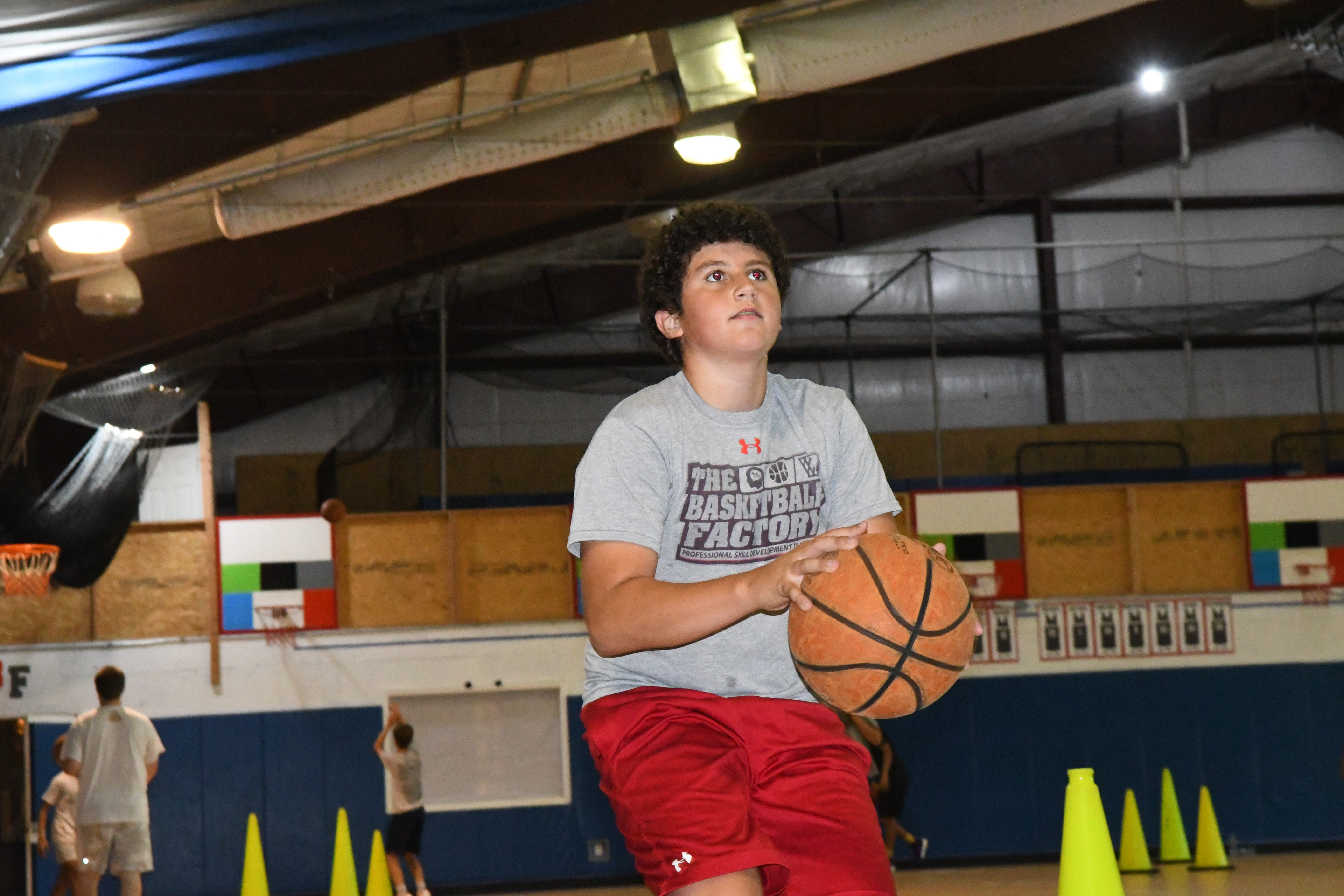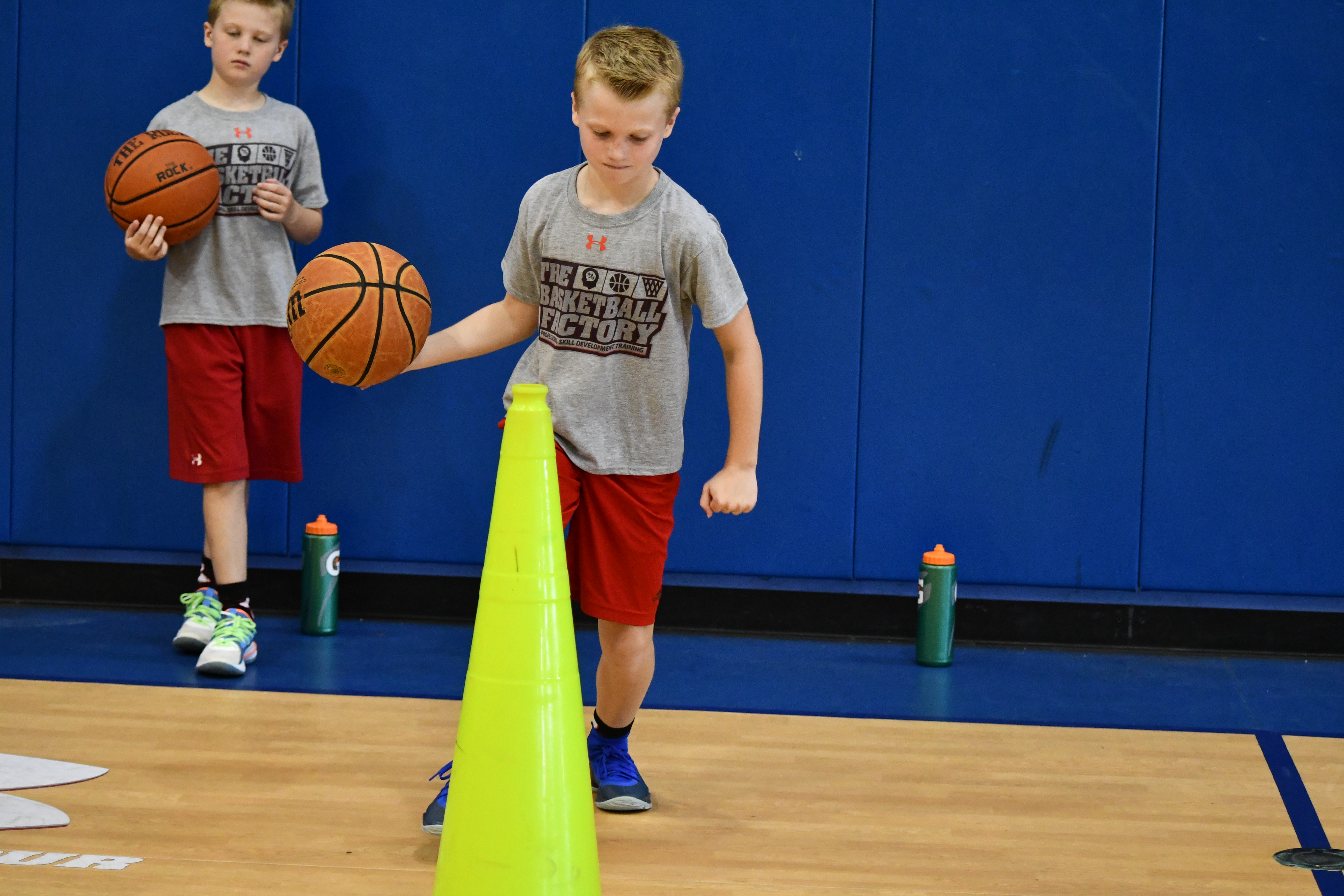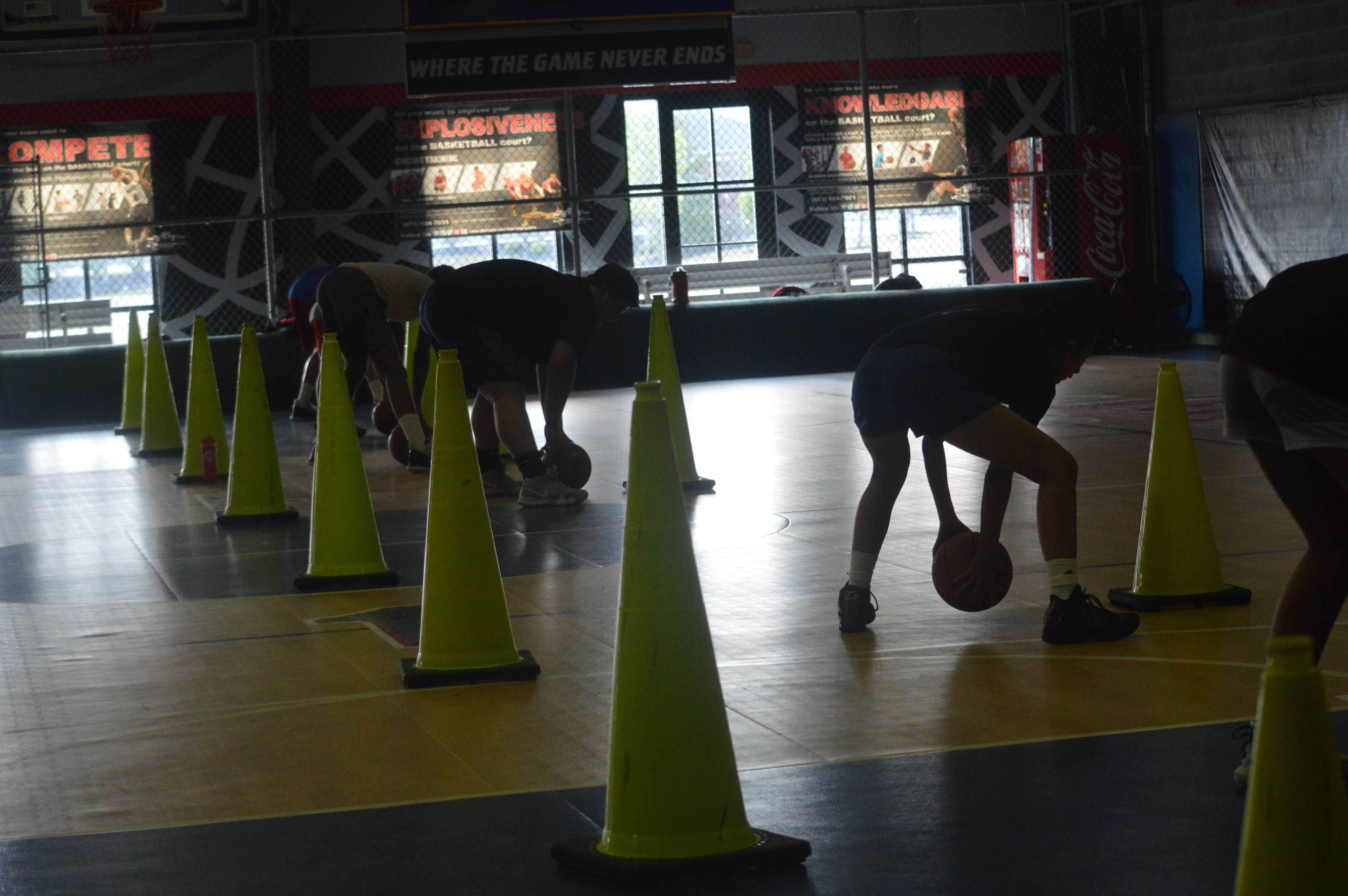Understanding the USA Basketball Development Pathway
The USA Basketball Development Pathway is a well-structured guide designed to cultivate not only better basketball players but also well-rounded individuals. Established by USA Basketball in 2014, this pathway symbolizes a commitment to developing youth through various stages, starting from a casual introduction to basketball all the way through to a life-long engagement with the sport.
The pathway includes several stages: Start, Explore, Learn, Participate, Advance & Perform, Advance & Excel, and finally, Basketball for Life. At the starting gate, young athletes are encouraged to engage with the sport in a relaxed setting. This could mean shooting hoops in the backyard or participating in school activities, which kindles an early passion for the game.
As players progress through these stages, they delve deeper, exploring local leagues and coaching opportunities. This journey is not just about improving basketball skills—it’s also about building friendships and developing personal values like resilience and teamwork. A quote from Jamie Carey succinctly captures this sentiment:
‘Youth basketball is about more than just skill; it’s about character.’
Coaching is another crucial element of the development pathway. The guide emphasizes a coaching philosophy that prioritizes patience, emotional maturity, and strong communication skills. Coaches are encouraged to focus on player development rather than the final score. After all, players benefit from learning through their mistakes, which fosters growth over time. The necessity of creating a safe space for open dialogue—where constructive feedback reigns over criticism—is a vital takeaway from this approach. Coaches, as Don Showalter puts it, need to remember that
‘Creating foundational experiences in sport is crucial for lifelong engagement.’
Furthermore, the guide promotes the idea of imparting valuable life skills through basketball. Traits like coachability—defined by humility and a willingness to accept guidance—are prioritized. Players learn to take responsibility for their actions and find opportunities to grow from their experiences. Key strategies like goal-setting are instrumental in maintaining motivation and encouraging personal responsibility. When players articulate their aspirations and develop action plans, they pave the way for small victories that keep them engaged in the sport.
Moreover, establishing a positive team culture is paramount. Clear behavioral expectations are outlined, emphasizing personal accountability, and promoting a sense of community within each team. The emphasis on sportsmanship, teamwork, and leadership provides players with a holistic view of what it means to be part of a team, nurturing not only athletes but also responsible citizens.
In summary, the USA Basketball Development Pathway is an invaluable resource that serves all participants involved in youth basketball, maximizing their potential both on and off the court. It provides structured developmental pathways, effective coaching strategies, and essential life lessons, ensuring that youth basketball programs in America continue to thrive.
Coaching Methodologies: Fostering Growth Beyond Winning
When talking about youth sports, the impact of effective coaching can’t be overstated. It’s not merely about the scores on the board; it’s about shaping young athletes into well-rounded individuals. Effective youth coaches embody multiple key characteristics that significantly elevate their coaching methodology. Patience and emotional maturity are essential qualities they possess, allowing them to prioritize learning and personal growth over winning games. This patient approach encourages a culture where mistakes are viewed as stepping stones rather than setbacks.
One fundamental idea resonating in contemporary coaching circles is the importance of player development over win-loss records. Statistics reveal that when development is prioritized, improved player retention rates follow suit. Coaches who focus on nurturing skills and character create an environment where young athletes feel safe to explore, learn, and develop their abilities. In this light, the goal shifts to not just winning but cultivating growth, resilience, and teamwork.
-
‘It’s not about being the best player, but the best teammate.’ – Dr. Kristin Neff
-
‘Mistakes are the pillars of learning.’ – Christopher Keller
Effective communication plays a crucial role in this transformative process. Young athletes thrive when coaches implement core communication principles. It’s not merely about relaying instructions; it involves caring for the athlete as a person. Citing the significance of credibility and constructive feedback, successful coaches cultivate connections with their players. They confirm and concentrate on individual strengths while gently guiding them through developmental challenges.
Moreover, a well-rounded coach also emphasizes behavioral management, teaching players accountability. Establishing clear expectations fosters an atmosphere where young athletes can learn, take responsibility for their actions, and contribute positively to their teams. This environment can be described as one where constructive feedback nurtures confidence, while criticism, if not careful, risks stifling a young athlete’s spirit.
Goal setting emerges as another essential tool in a coach’s arsenal. By facilitating meaningful discussions around personal and team goals, a coach empowers players to outline clear objectives. Through these objectives, they establish action plans that make room for incremental successes, reinforcing the athlete’s enjoyment and commitment to the sport.
Ultimately, a well-rounded youth coach plays a pivotal role in instilling values that extend beyond the game. Coaches who model sportsmanship, teamwork, and leadership help young athletes navigate the competitive climb while appreciating the game’s journey. Thus, training young players goes hand in hand with coaching methodologies that mold character, ensuring they grow not just as athletes but as individuals equipped for life’s many challenges.
Life Lessons Learned on the Court
Basketball is often seen solely as a game, but dig a little deeper, and you’ll find it’s a powerful teacher of life lessons. For young athletes, the sport acts as a comprehensive classroom, instilling values like resilience, accountability, and teamwork that will stay with them long after the final buzzer sounds.
One of the remarkable aspects of basketball is how it emphasizes resilience. Each game presents unique challenges—missing a crucial shot, losing a lead in the final minutes, or facing a more skilled opponent. These moments teach young players that failure is not the end but rather an opportunity for growth. As one insightful saying goes,
‘The true victory is in the lessons learned from failures.’
In these tough moments, young athletes learn to pick themselves up and keep pushing forward, a lesson that transcends the sport and applies to many life situations.
Accountability also plays a crucial role on the court. Each player soon learns that their actions affect the entire team. Whether it’s showing up on time, practicing hard, or following the coach’s game plan, taking personal responsibility helps in making informed decisions that contribute to the team’s success. The lessons learned here set a solid foundation for young athletes, helping them develop into individuals who understand the importance of meeting commitments in all areas of life.
Then there’s the richness of goal setting. Coaches often begin discussions about personal and team goals, encouraging players to define what they want to achieve. Clear objectives serve as a roadmap, guiding athletes toward personal improvement and team success. Engaging in this practice can lead to enhanced performance and motivation. It’s essential that players learn to celebrate the small victories along the way to keep their spirits high. After all,
‘Teamwork makes the dream work.’
With all these lessons, teamwork becomes indispensable. On a basketball team, collaboration isn’t just beneficial; it’s essential. Players naturally develop leadership skills as they learn to communicate effectively, support each other, and work collectively to adjust strategies during gameplay. As players engage with one another, they realize that everyone has a critical role to play. This environment not only builds camaraderie but also paves the way for leaders to emerge, enhancing team dynamics in unparalleled ways.
Furthermore, the USA Basketball Youth Development Guidebook highlights the importance of fostering a positive team atmosphere. Setting clear behavioral expectations ensures that players understand the consequences of their actions, promoting personal accountability. Coaches are encouraged to create a nurturing environment that values sportsmanship and respect, providing a safe space for young athletes to learn and grow.
Ultimately, basketball serves as more than just a physical activity—it shapes well-rounded individuals prepared for various aspects of life. The skills acquired on the court prepare players to tackle life’s challenges with resilience, embrace accountability, set achievable goals, and promote teamwork. The lessons learned through basketball can indeed echo throughout one’s life, strengthening not only the athlete’s character but also their ability to navigate the complexities of the world beyond the game.
Creating a Positive Team Atmosphere
In today’s fast-paced world of sports, particularly in youth basketball, the foundation of a successful team often hinges on the atmosphere cultivated among its players. The USA Basketball Youth Development Guidebook sheds light on effective behavior management strategies, which are essential for fostering a healthy environment. Notably, it emphasizes the importance of setting clear expectations. When coaches and players are on the same page, conflicts tend to diminish, creating a space where athletes can thrive both personally and collectively.
One of the critical distinctions made in the guide is between critique and criticism. The latter can often lead to feelings of discouragement and resentment among young players. Instead, constructive feedback—taken seriously—can be a powerful tool for professional growth. Just as an anonymous quote wisely states,
‘Constructive feedback builds, criticism destroys.’
It’s about nurturing an athlete’s potential rather than pointing out their flaws.
On top of fostering a growth-oriented mindset, the guidebook champions the concept of accountability. This isn’t just about holding players responsible for their actions; it’s about developing self-respect and a sense of ownership in team success. When every player recognizes their role within the group, the entire dynamic shifts toward a more positive direction.
Research shows a direct correlation between a constructive team environment and improved athlete performance. Coaches who prioritize a supportive atmosphere often see the fruits of their labor reflected both on and off the court. It’s this environment where players build resilience, teamwork, and leadership skills, making the sport as enriching as it is competitive.
The guidebook encourages players to set personal goals, but it’s essential for coaches to understand these objectives deeply. Engaging in meaningful conversations about their aspirations not only helps the players stay motivated but also encompasses a broader lesson in goal achievement. This process reinforces the idea of constant development, highlighting that success is a series of incremental improvements rather than a final destination.
In summary, creating a positive team atmosphere is pivotal for youth basketball. By ensuring clarity in expectations, embracing the power of constructive feedback, and cultivating a culture of accountability, both coaches and players can experience enhanced performance and satisfaction. The guidebook stands as a valuable resource, pushing everyone involved toward a more fulfilling journey in basketball.
TL;DR: A positive team atmosphere in youth basketball fosters better performance by establishing clear expectations and constructive feedback, while promoting accountability among players. The USA Basketball Youth Development Guidebook highlights these core principles, encouraging personal goal setting and resilience development.






